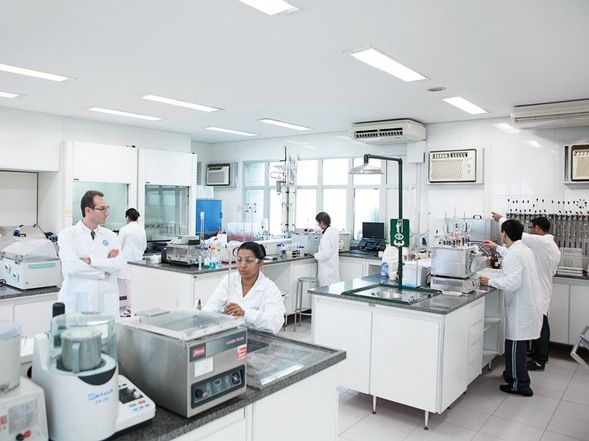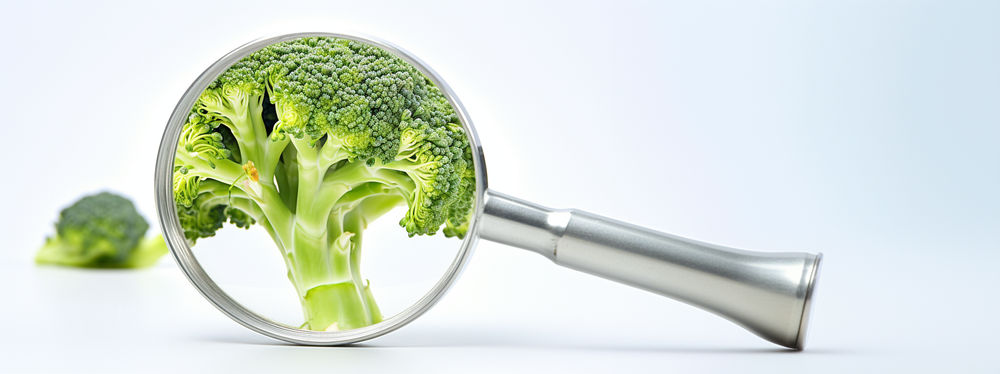Third-party assessment ensures food safety
World Accreditation Day 2020
Advertisement
On the occasion of World Accreditation Day on 9 June 2020, TÜV SÜD points out the important role that certification plays in food safety. World Accreditation Day goes back to an initiative launched by the International Accreditation Forum (IAF) and the International Laboratory Accreditation Cooperation (ILAC). With 25,000-plus staff in roughly 50 countries, TÜV SÜD is among the world's leading suppliers of testing, inspection and certification (TIC) services.

TÜV SÜD AG
This year’s theme of World Accreditation Day is “Accreditation: Improving food safety”. In view of the growing world population, the globalisation of food production and increasing consumer demands, ensuring food quality and safety throughout the supply chain has turned into a central challenge for all stakeholders – from producers to retailers and consumers. As an essential industry, the food industry is subject to state supervision in many countries. In the European Union, for instance, food safety is governed by Regulation (EU) No. 178/2002. Regulatory authorities in the individual EU Member States verify that companies comply with the legal requirements regarding product quality and hygiene in food production. In Germany, food safety supervision is a responsibility of the individual German states.
In addition to the mandatory state regulations, there are voluntary certificates that go beyond the legal requirements and cover production processes as well as products. Typically, the associated food-safety standards are created by food and feed industry associations or by retail organisations to establish robust and verifiable proof of food safety and quality. One example is the International Food Standard (IFS) developed by the German Retail Federation (Handelsverband Deutschland, HDE) and food-retail representatives, which defines strict requirements for food producers and food retailers.
Transparency throughout the supply chain
Generally, conformity with voluntary food standards such as IFS is assessed by third-party organisations specialising in testing, inspection and certification (TIC). In most cases these assessments are carried out in the form of on-site audits that verify hygiene, formulations, specifications, production records and implementation of the necessary analyses in food laboratories. TIC companies issue certificates or certificates of conformity that confirm that the requirements of the relevant standard have been fulfilled.
To carry out food-safety audits and issue the relevant certificates, these TIC companies must be authorised or accredited by the respective standard. Within the scope of the authorisation or accreditation procedure, they must prove that they carry out their work with professional expertise and in compliance with all legal and normative requirements. Standard owners assess various aspects including the management systems of TIC companies and the qualification of the staff used, and perform regular surveillance of them.
“State supervision plus voluntary certificates form the basis of food safety and quality and ensure the required level of transparency throughout the supply chain”, says Dr Andreas Daxenberger, who is responsible for the development of the Food and Feed business unit at TÜV SÜD Management Service GmbH, explaining, “With our global network of experts and laboratories and our processes, which are under continual surveillance by accreditation bodies and private standard owners, we ensure standardised and comparable auditing and documentation of conformity with the relevant food-safety standards.”
Basically, the development and implementation of internationally harmonised and recognised standards and transparency throughout the supply chain can be described as crucial factors for inspiring consumer trust in food safety and quality. The accreditation and certification system is a prerequisite for ensuring implementation of, and compliance with, these standards. TIC companies contribute significantly to the transparency of global supply chains, and thus help to ensure end-to-end traceability and consistent quality of food.
TÜV SÜD currently holds around 650 accreditations worldwide, spanning the company’s wide-ranging fields of activity.
Other news from the department business & finance
Most read news
More news from our other portals
See the theme worlds for related content
Topic world Food safety
Food safety is at the heart of the food and beverage industry. It ensures that the food we eat every day is not only nutritious, but also free of harmful contaminants. From field to plate, the industry monitors and regulates every step of the process with strict quality controls, advanced testing methods and continuous research.

Topic world Food safety
Food safety is at the heart of the food and beverage industry. It ensures that the food we eat every day is not only nutritious, but also free of harmful contaminants. From field to plate, the industry monitors and regulates every step of the process with strict quality controls, advanced testing methods and continuous research.


























































